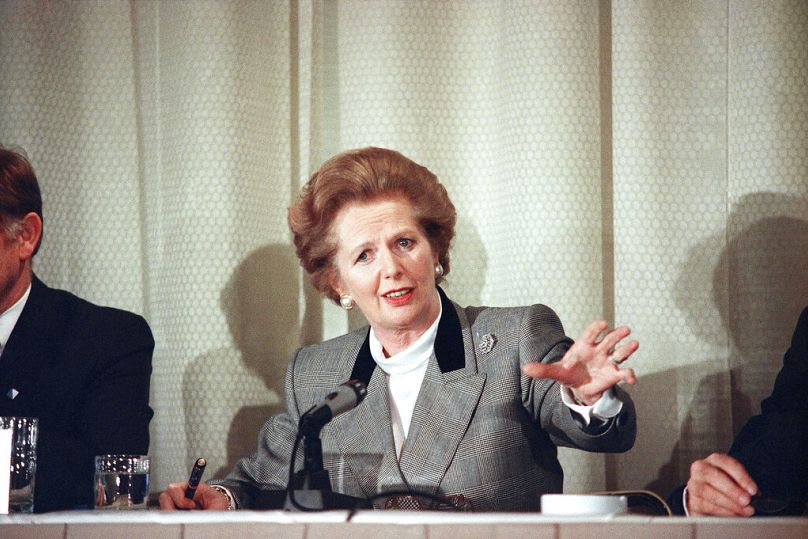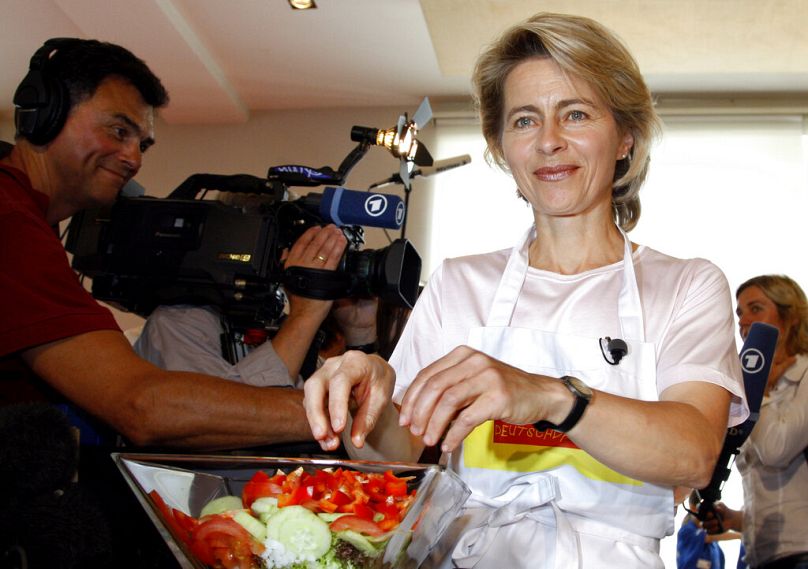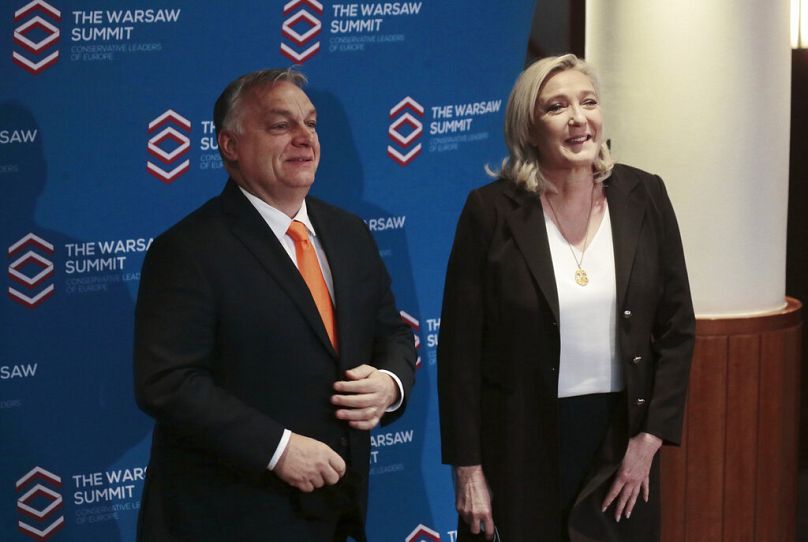Roberta Metsola's appointment to President of the European Parliament is the latest in a long-observed pattern. From Marine le Pen to Angela Merkel, why, asks College of Europe professor Costanza Hermanin, are female holders of real executive power always right-wing?
Now that three out of five key European leadership positions are held by women, the EU can finally claim that gender equality in its decision-making roles is improving.
However, one question arises after Roberta Metsola’s nomination as President of the European Parliament: why is it that most women leaders in Europe come from conservative parties?
Women and the European Right
Roberta Metsola comes from a right-wing Maltese party and is known to gender equality advocates for her anti-abortion declarations. The European Central Bank's Christine Lagarde is the past finance minister of a right-wing government in France.
Ursula von der Leyen, the first woman to become President of the Commission, was a defence minister from the Christian Democratic Union for Angela Merkel (yet another conservative woman leader) in Germany.
In other words, at the European level, all woman leaders belong to the same group: the European People's Party, a 'moderate' right-wing entity today, but one that used to include parties with thorough reactionary positions on gender equality, such as Viktor Orban’s Fidesz.
Besides Merkel’s fifteen-year rule, and except for a handful Scandinavian or Baltic socialist prime ministers, the vast majority of women who have held true executive power in Europe - as party or government leaders – come from the right, starting with Margaret Thatcher.
Looking at the past and present, the list goes on for the conservatives, including Theresa May and one of three past female Polish prime ministers.
In Poland, the other two came from the reactionary Law and Justice Party. They belong to Europe's extreme right wing, as do Marine Le Pen (France), Giorgia Meloni (Italy), and Frauke Petry and Alice Weidel, respectively Alternative fur Deutschland’s founder and leader in the Bundestag.
Why all these women on the right, then? And more importantly, why is the part of the political spectrum that's allegedly more attentive to gender equality – the left - having so many difficulties expressing a woman leader?
Maternal figures?
Political scientists are still struggling to find an explanation. On the one hand, some note that the conservative women who make it often portray the traditional 'feminine' figure championed by the right.
Accepting their leadership would then be a strategy that conservative party leaders find useful to restate their – traditionalist – family policies, and to propose role models who can claim back some of the women’s votes that have shifted to the left since the 1970s.
This claim is true for some women leaders, notably for Thatcher, who famously kept cooking dinner at Downing Street during her time as PM, or Von der Leyen, with her seven children.
However, the explanation is exposed as flawed when it comes to figures like Weidel, who is openly lesbian, Le Pen, who is twice divorced, and Meloni, a single mother.
Both in the case of the conservatives and the extreme right, female role models have nonetheless been able to win back women’s votes.
In the case of Italy, for instance, more than half of Meloni’s party supporters in the 2018 election were women, up from 37.5 percent in 2013. According to a 2018 study, Le Pen had at least as may women voters as men in the 2017 Presidential election.
Or… Women in men’s shoes?
Curiously, on the other hand, a majority of conservative and far-right female leaders of our times – even the more 'maternal' figures – often showcase characteristics that are normally associated with 'masculine' professions or typical of 'masculine' leaderships.
Many have a background in the STEM or 'hard sciences': Merkel is a physician, Thatcher was a chemist, Von der Leyen used to be a defence minister and Lagarde has long been in charge of finances.
On the far right, traditionally masculine traits emerge in aggressive attitudes, loud voices, and an overplayed assertiveness, sometimes even manifesting in dress codes.
While researchers struggle to find an explanation for the success of women in the European right, two points should now be established.
First, it's high time that European progressives act to close their resoundingly gendered leadership gap. The French presidential election might have been a test for that, if only the divided French left had any chance to reach the second tour.
Instead, the presence of female presidential candidates on that end of the spectrum confirms women are put forward especially in moments of crisis.
Second, European women should focus on encouraging moderate female leaders to become stronger equality advocates, and to represent the interests of all women.
Roberta Metsola’s acceptance speech in the European Parliament, in which she gave gave assurances that she would champion the majority view of the Assembly, not her own view, on reproductive rights, was a first step. Let us hope that many others will follow.
Costanza Hermanin is a research fellow at the European University Institute’s School of Transnational Governance.














